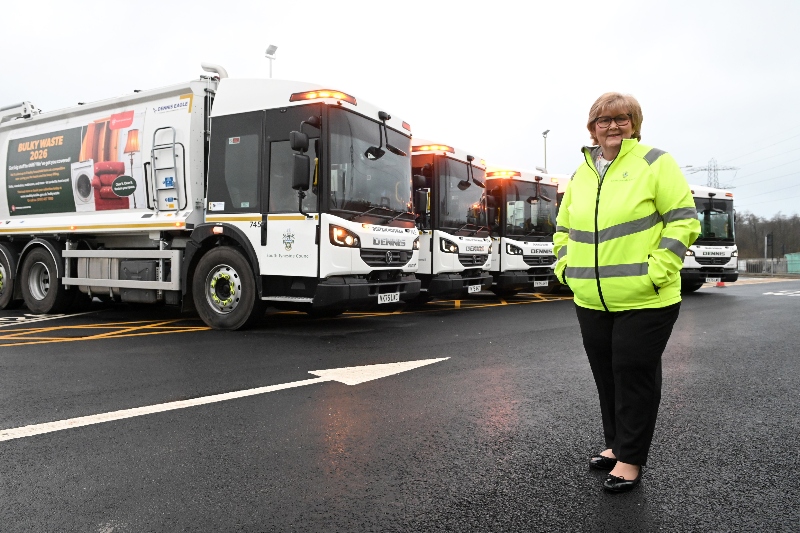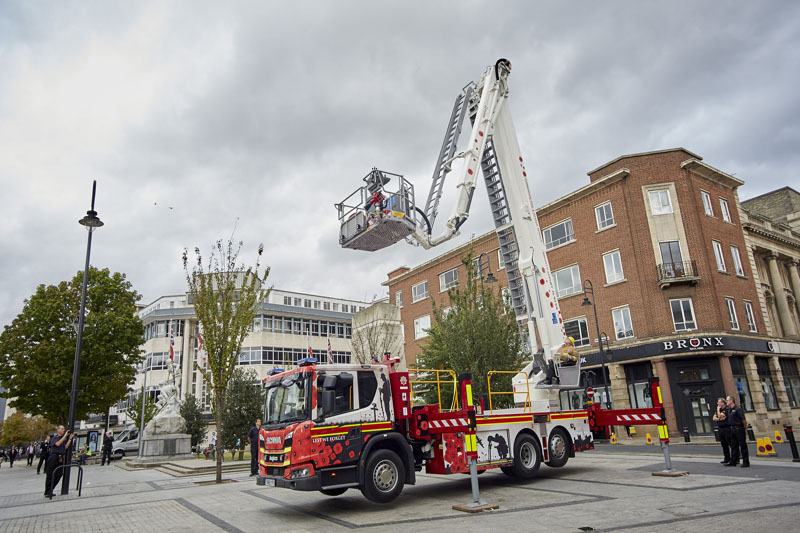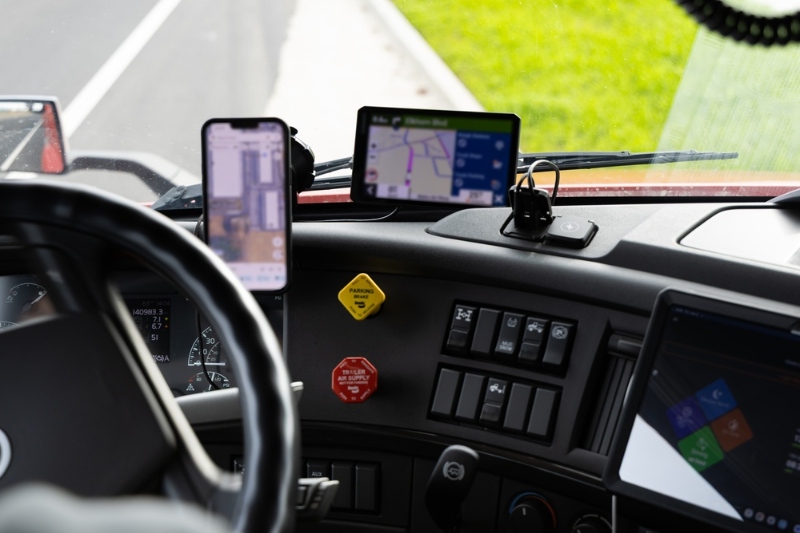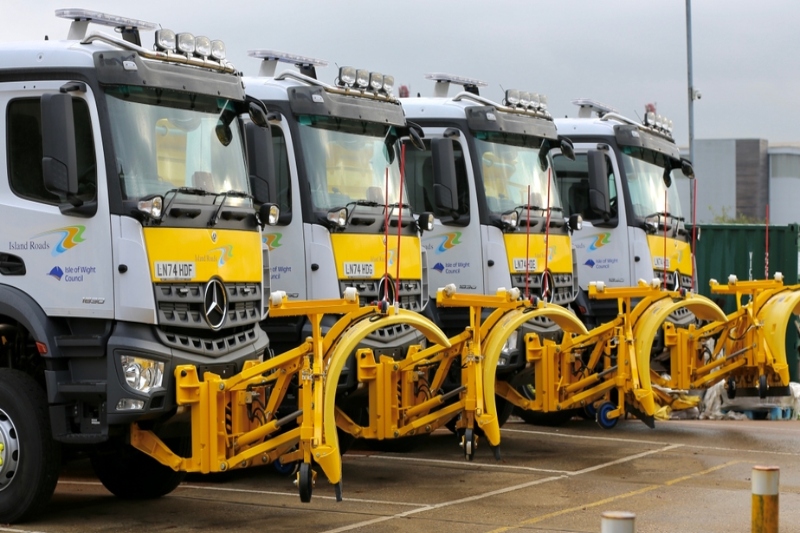Celia Norton, from Holder UK, says their multi-purpose vehicles are Masters of all trades - not Jacks. Steve Banner put them to the test in Germany.
Holder prides itself on being the producer of a robust range of multi-purpose vehicles that can accommodate a wide variety of tools. So, they can mow grass, suppress weeds, clean synthetic turf, spread salt, plough a path through thick snow, sweep snow, blow snow ... the list seems endless. They can sweep the streets clear of rubbish too and help you repair them if you attach a patch planer.
'And it is this versatility that should ensure they will appeal to cash-strapped local authorities,' said Norton. She points out that, although Holders do not come cheap, acquiring one vehicle that can do the job of three or four or more with the right accoutrements can make for a significant saving. And councils still grappling with a climate of austerity should welcome that, she argues.
If funding is an issue, however, then Holder now offers a variety of rental and leasing packages thanks to an initiative it started 12 months' ago.
Based in Metzingen, half-an-hour south of Stuttgart in Germany, and with a heritage stretching back 128 years, Holder and its 245 employees produce around 650 to 700 vehicles annually with each one built to order, generating a €42 million-a-year (£32 million) turnover.
'Seventy per cent of the components used are made within 100km of the factory,' said Norton, who is responsible for such diverse markets as the Republic of Ireland, Scandinavia, Poland, Australia and New Zealand as well as the UK.
While some of Holder's output is aimed at agricultural applications, municipalities represent one of the company's key target markets. It has been active in the sector since 1980 and the vehicles it is targeting them with are primarily classed as articulated tractors. Its first articulated machines made their debut as far back as 1954.
Apart from articulation for greater manoeuvrability, key features on the majority of models include permanent four-wheel-drive, a mechanical differential lock and wheel load compensation. This should ensure that all four wheels are always in contact with the ground even if the driver is travelling over steep or uneven terrain or negotiating such obstacles as fallen tree trunks.
'It's very hard to tip a Holder over,' said Norton.
Most Holders are equipped with mechanical power take-off shafts but hydraulics are not neglected either, with up to two separate circuits and a capacity of up to 120 litres.
Holder does not make attachments itself but can fit approved products from third parties, such as Kugelmann, Kersten, Simex and Wave at its factory. It has a well-thought-out approval process to ensure that any attachments an operator wants to install are suitable for the machine in question. Devices can be swapped quickly ' sometimes in as little as 30 seconds ' and demounting kit, such as snow brushes and even tipper bodies, is a one-man operation.
Diesel power dominates, with engines sourced from Perkins, Kubota or Deutz ' depending on the model concerned ' married to hydrostatic drives. Holder is mindful, however, of the growing dislike of diesel among some city authorities and is now trialling a petrol-powered model in Paris.
As far as municipal applications are concerned, gross weights range from 2,000kg for the single-seater X 30 to 4,500kg for the twin-seater S 1090.
So what's a Holder like in action? We tackled the off-road course next door to the firm's headquarters and factory in a two-seater
C 370 (a single-seater version is available too under the C 270 banner) on 38cm wheels shod with winter tyres and came away impressed.
Grossing at 3,500kg and with 67hp on tap from its 2.6-litre four-cylinder turbocharged Kubota diesel engine (top torque is 217Nm), it powered up steep inclines with loose surfaces without breathing hard and with only the occasional need to deploy the diff lock. It happily tackled equally-demanding descents. Artificial obstacles, such as a small flight of concrete steps and a large concrete pipe, did not impede its progress.
Venturing out of the factory onto surrounding roads and into a small industrial estate, we quickly discovered, once again, that articulation means manoeuvrability. With an inner-turning circle of barely more than 1.4m, we were able to swing around obstacles with the minimum of effort using the knob on the steering wheel while taking full advantage of the good all-round vision from the driver's seat.
Top speed is 25mph and we were impressed by C 370's strong acceleration. With a roomy cab, easy-to-comprehend controls that fall readily to hand and feeling as stable on-road as it does off-road, there is no doubting C 370's build quality. And, if 67hp seems slightly excessive for run-of-the-mill council work, then it is worth noting that you can order a less-powerful variant ' the C 350 ' with a more-modest 50hp on tap. And if you want it as a single-seater then you order the C 250. Bear in mind that a 3.5-tonner can be driven by employees licensed to drive a car.
Engine access is pretty much unrivalled. Tip whichever body your C 370 is equipped with and fold out the panels on each side of the vehicle and ease of maintenance from three sides is assured.
Payload capacity is just over 1.5 tonnes and the C 370 can tow an unbraked trailer grossing at roughly the same weight. It can also haul a braked trailer with an impressive weight of 3.5 tonnes.
While Holder continues to sing the praises of articulation, it appreciates that it is not favoured by all of its potential customers.
Consequently, it offers a rigid model with four-wheel-steering called the Muvo that is built in Croatia under a joint-venture agreement with another manufacturer.
Power comes courtesy of a VM diesel. Holder has also developed something called PowerDrive. This employs a motor at each wheel which, between them, deliver up to 50% more climbing ability than standard 4x4 models says the manufacturer. It automatically switches from 4x2 to 4x4 mode and back again, depending on the driving conditions.
When a vehicle fitted with PowerDrive is simply travelling from location to location, the amount of torque available from the motors is halved and the rear axle is de-activated so that maximum speed is reached at a lower motor speed. As a result, fuel usage is cut by 10% and noise falls too.
Northern Ireland is covered by Newtownabbey-based RD Mechanical Services (Holder has a number of machines in service in Belfast) and Norton is now looking to develop a more comprehensive network. She wants up to three more dealers to handle England, Scotland and Wales.
She said: 'We require well-established businesses with experience of the municipal market and of selling and supporting similar products to ours. They need to be prepared to get out there and promote what Holder has to offer. We've already got plenty of contacts for them to follow up.'
Get the dealers in place (sooner rather than later) and Holder should have a bright future among municipalities in the UK.






